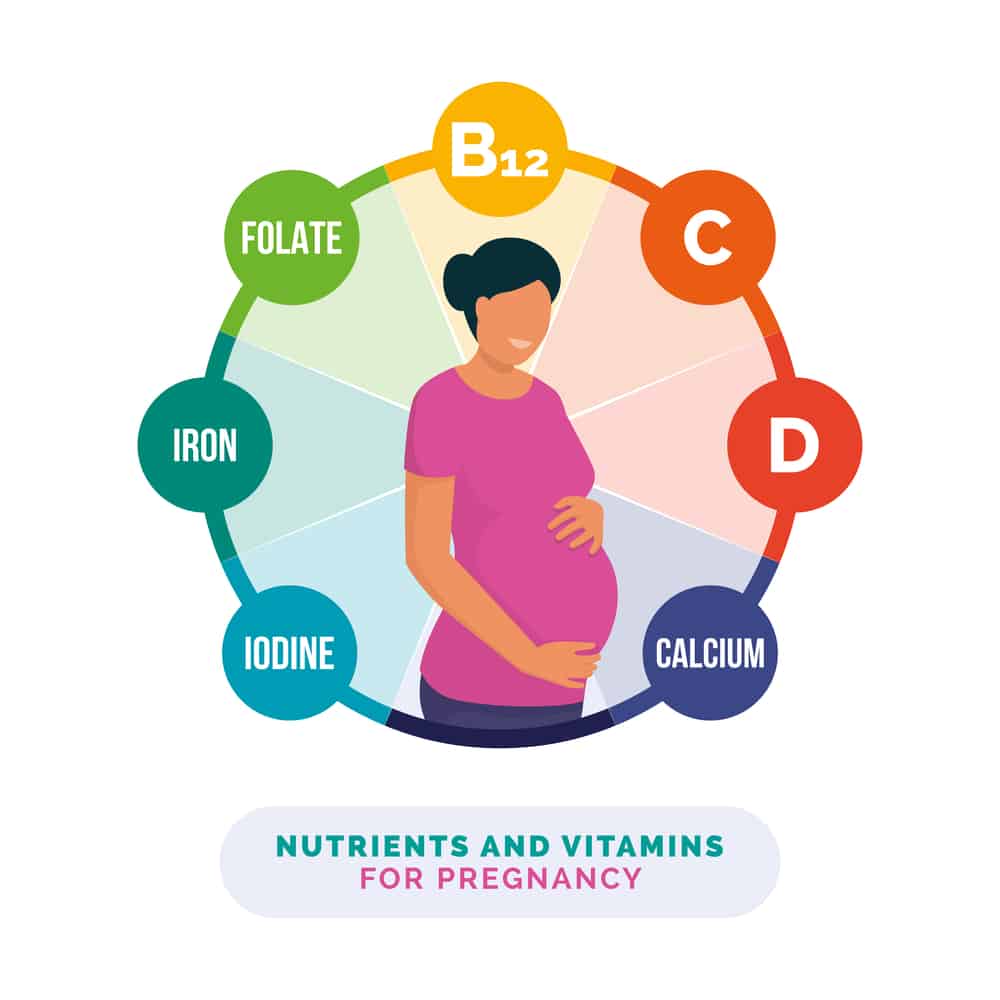Preparing for a baby is an exciting and vital time in anyone’s life. One essential aspect of pre-pregnancy preparation is optimizing your nutrition to increase your chances of getting pregnant and support a healthy pregnancy. A pre-pregnancy diet that is rich in essential nutrients can help prepare your body for pregnancy, reduce the risk of birth defects, and support the healthy development of your baby.
In this ultimate guide to pre-pregnancy diet, we will explore the foods to eat and the foods to avoid when trying to conceive, as well as answer some common questions related to fertility and nutrition. Whether you’re just starting to think about starting a family or actively trying to conceive, this guide will provide you with the information you need to make healthy food choices that support your fertility and overall health. So let’s get started!
Importance of a healthy pre-pregnancy diet
A healthy pre-pregnancy diet can significantly impact your chances of conceiving, your pregnancy’s health, and your baby’s health. Here are some of the ways that a healthy pre-pregnancy diet can benefit you and your baby:
Optimizes fertility
Eating a balanced diet with essential nutrients such as folic acid, iron, calcium, and vitamin D can help optimize fertility. These nutrients play a crucial role in hormone balance, ovulation, and reproductive health, which can increase your chances of getting pregnant.
Reduces the risk of birth defects
Certain nutrients, such as folic acid, are essential for the healthy development of your baby. Folic acid is particularly important when the neural tube is forming in the early stages of pregnancy. A deficiency in folic acid can increase the risk of neural tube defects such as spina bifida.
Supports a healthy pregnancy
Eating a nutritious diet during pregnancy can reduce the risk of complications such as pre-eclampsia, gestational diabetes, and preterm labor. A healthy diet can also give your growing baby the essential nutrients they need for healthy development.
Promotes long-term health
A healthy pre-pregnancy diet can have long-term health benefits for both you and your baby. For example, research has shown that babies born to women who ate a diet rich in fruits, vegetables, and whole grains during pregnancy had a lower risk of childhood obesity.
We understand the importance of a healthy pre-pregnancy diet at the Motherhood Center, so we offer prenatal nutrition classes to guide you toward a balanced and nutritious diet. A healthy pre-pregnancy diet can significantly impact your chances of conceiving, your pregnancy’s health, and your baby’s health. Enrolling in our prenatal nutrition classes, you can better understand how a healthy diet can benefit you and your baby.
Nutrients to focus on

When it comes to pregnancy nutrition, certain nutrients are particularly important. Here are some key nutrients to focus on when trying to conceive:
Folic acid
Folic acid is essential for the healthy development of your baby’s neural tube, which forms in the early weeks of pregnancy. It’s recommended that women trying to conceive take a daily supplement of 400-800 micrograms of folic acid. Folic acid is also found in leafy green vegetables, citrus fruits, and fortified cereals.
Iron
Iron is essential for red blood cell formation and oxygen transport, and it’s especially important during pregnancy when blood volume increases. Iron-rich foods include red meat, poultry, fish, beans, and fortified cereals.
Calcium
Calcium is important for healthy bones, teeth, and nerve and muscle function. During pregnancy, calcium needs to increase to support the growth and development of your baby’s bones. Good sources of calcium include dairy products, leafy green vegetables, and fortified foods.
Vitamin D
Vitamin D is essential for bone health, immune function, and calcium absorption. Many people don’t get enough vitamin D and need supplements. Good food sources of vitamin D include fatty fish, egg yolks, and fortified foods.
Omega-3 fatty acids
Omega-3 fatty acids are important for brain and eye development and may help prevent preterm labor. Good sources of omega-3s include fatty fish, flaxseed, and walnuts.
In addition to these key nutrients, eating a varied and balanced diet that includes plenty of fruits, vegetables, whole grains, and lean protein sources is important. Focusing on these essential nutrients and making healthy food choices can help prepare your body for pregnancy and support a healthy pregnancy and baby.
Foods to eat for a healthy pre-pregnancy diet
Eating a healthy and balanced diet before you get pregnant is essential for both your own health and the health of your future baby. Here are some foods to consider adding to your pre-pregnancy diet:
Fruits and vegetables
Aim to eat a variety of fruits and vegetables every day. These are great sources of vitamins, minerals, and fiber. Some good choices include leafy greens, berries, citrus fruits, carrots, and sweet potatoes.
Whole grains
Choose whole-grain bread, pasta, and rice over their refined counterparts. Whole grains are a good source of fiber and other essential nutrients.
Lean protein sources
Good choices for lean protein include poultry, fish, beans, lentils, tofu, and eggs.
Dairy products
Dairy products such as milk, cheese, and yogurt are good sources of calcium and other important nutrients. Choose low-fat or fat-free options when possible.
Nuts and seeds
These are good sources of healthy fats and protein. Try adding nuts and seeds to salads, oatmeal, or smoothies.
Water
Staying hydrated is important for overall health, and it’s especially important when trying to conceive. Aim to drink at least eight glasses of water a day.
In addition to these foods, it’s important to limit your intake of processed and high-sugar foods. These foods can lead to weight gain and other health problems, which can make it harder to conceive. It’s also a good idea to limit your intake of caffeine and alcohol when trying to get pregnant.
By eating a variety of healthy foods and limiting your intake of unhealthy foods, you can help optimize your pre-pregnancy nutrition and increase your chances of a healthy pregnancy.
Foods to avoid for a healthy pre-pregnancy diet
In addition to focusing on the right nutrients and foods to eat, it’s important to also be aware of the foods you should avoid in order to optimize your pre-pregnancy diet. Here are some foods to avoid:
Raw or undercooked meat
Consuming raw or undercooked meat increases your risk of contracting foodborne illnesses like salmonella and listeria, which can harm your baby.
Certain fish
Some types of fish can contain high levels of mercury, which can be harmful to your baby’s developing brain and nervous system. It’s best to avoid large predatory fish like shark, swordfish, king mackerel, and tilefish.
Raw or undercooked eggs
Just like with meat, consuming raw or undercooked eggs can increase your risk of contracting salmonella.
Unpasteurized dairy products
These products, such as raw milk and some cheeses, can contain harmful bacteria and increase your risk of foodborne illness.
Processed and high-sugar foods
As mentioned earlier, limiting your intake of processed and high-sugar foods is important. These foods can lead to weight gain and other health problems, making it harder to conceive.
Alcohol and caffeine
It’s best to avoid alcohol completely when trying to get pregnant. Caffeine should also be limited to 200 milligrams per day, equivalent to about one 12-ounce cup of coffee.
By being aware of the foods to avoid and making conscious decisions about what you eat, you can help create a healthy pre-pregnancy diet that will increase your chances of a healthy pregnancy.
Supplements to consider
While a healthy diet can provide most of the necessary nutrients for a pre-pregnancy diet, taking supplements can help ensure you get all the vitamins and minerals your body needs to support a healthy pregnancy. Here are some supplements to consider adding to your pre-pregnancy routine:
Folic acid
Taking a folic acid supplement before you conceive and during early pregnancy can help prevent neural tube defects in your baby. The recommended daily dose is 400-800 micrograms.
Iron
Iron is important for the production of red blood cells, which carry oxygen to your baby. Many women are deficient in iron, so taking an iron supplement can be beneficial. The recommended daily dose is 27 milligrams.
Vitamin D
Vitamin D is important for bone health and immune function. Most people don’t get enough vitamin D from their diet, so taking a supplement can be helpful. The recommended daily dose is 600-800 IU.
Omega-3 fatty acids
Omega-3 fatty acids are important for brain and eye development in your baby. They can be found in fish oil supplements or in foods like salmon and walnuts. The recommended daily dose is 200-300 milligrams of DHA.
Probiotics
Probiotics can help support a healthy gut microbiome, which can positively impact fertility and pregnancy outcomes. They can be found in supplements or in fermented foods like yogurt and kefir.
It’s important to talk to your healthcare provider before starting any new supplements to ensure they’re safe and appropriate. They can also help you determine the right dosage and timing for your individual needs.
Lifestyle factors to consider
A healthy pre-pregnancy diet is important, but other lifestyle factors can impact fertility and pregnancy. Here are some to consider:
Exercise
Regular exercise can help maintain a healthy weight and improve fertility. Women who are trying to conceive should aim for at least 30 minutes of moderate exercise most days of the week.
At Motherhood Center, we offer Prenatal Yoga and Pregnancy Fitness Classes tailored to expectant mothers’ unique needs. Exercise during pregnancy can have numerous benefits for both you and your baby, and our classes provide a safe and supportive environment to stay active.
Smoking
Smoking has been linked to lower fertility rates and an increased risk of complications like miscarriage, preterm birth, and low birth weight. Women who smoke should quit before trying to conceive.
Alcohol
Drinking alcohol during pregnancy can lead to a range of complications, including fetal alcohol syndrome. Women who are trying to conceive should avoid alcohol, or at the very least, limit their intake to one drink per day.
Caffeine
While there’s no need to eliminate caffeine entirely, high levels of caffeine have been linked to fertility problems and complications like miscarriage and low birth weight. Women who are trying to conceive should limit their caffeine intake to no more than 200 milligrams per day, or about one 12-ounce cup of coffee.
Stress
Chronic stress can interfere with fertility and increase the risk of complications like preterm birth and low birth weight. Women who are trying to conceive should try to manage stress through relaxation techniques like meditation, yoga, or deep breathing.
By making healthy lifestyle choices, women can increase their chances of getting pregnant and having a healthy pregnancy. It’s important to talk to your healthcare provider about any lifestyle changes you’re considering, as they can provide guidance and support.
Conclusion
Optimizing your pre-pregnancy diet is an important step in increasing your chances of getting pregnant and having a healthy pregnancy. By focusing on nutrient-dense foods, avoiding unhealthy ones, and incorporating supplements if necessary, you can help ensure that your body is in prime condition for conception and healthy pregnancy.
At Motherhood Center in Houston, we understand the importance of a healthy pre-pregnancy diet and lifestyle. That’s why we offer a variety of classes and services to help support women in their journey to motherhood. Our team of experts can provide guidance on nutrition, exercise, and other lifestyle factors that can impact fertility and pregnancy.
If you want to learn more about optimizing your pre-pregnancy diet and lifestyle, we invite you to sign up for one of our classes or contact us for more information. We aim to provide you with the knowledge and support you need to have a healthy, happy pregnancy and motherhood journey.
FAQs
Why is a healthy pre-pregnancy diet important?
A healthy pre-pregnancy diet is important because it helps optimize your fertility and prepares your body for a healthy pregnancy.
Should I avoid all processed foods when trying to conceive?
It’s best to limit your intake of processed foods and focus on nutrient-dense whole foods instead. However, enjoying processed foods in moderation is okay as part of a balanced diet.
Can supplements improve my chances of getting pregnant?
While supplements can help fill nutrient gaps in your diet, they should not be relied upon as a substitute for a healthy diet and lifestyle. It’s important to consult with your healthcare provider before taking any supplements.
What lifestyle factors should I consider when trying to conceive?
Lifestyle factors impacting fertility and pregnancy include managing stress, getting enough sleep, avoiding alcohol and tobacco, and maintaining a healthy weight through regular exercise and a balanced diet.
How can Motherhood Center in Houston help me optimize my pre-pregnancy diet and lifestyle?
At Motherhood Center, we offer a variety of classes and services to help support women in their journey to motherhood, including nutrition and lifestyle counseling and prenatal yoga. Contact us to learn more about how we can help you.




